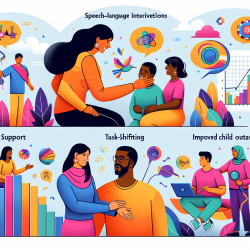In today's rapidly evolving work environment, flexibility has become a crucial element for enhancing both employee satisfaction and productivity. The research article "Work Flexibility and Work-Related Well-Being" sheds light on the importance of flexible work arrangements and their impact on worker well-being. This blog post aims to help practitioners improve their skills by implementing insights from this research or by encouraging further exploration into the topic.
The Importance of Work Flexibility
Work flexibility refers to the ability to adjust work location, schedule, and time off according to personal needs. The study highlights three main types of flexibility:
- Location Flexibility: The ability to work from home or other locations.
- Leave Flexibility: The ease of taking time off for personal or family matters.
- Schedule Flexibility: The ability to change starting and finishing times.
The research indicates that these forms of flexibility are associated with increased job satisfaction and decreased job stress. For instance, being able to take time off significantly reduces job stress by 56% and increases job satisfaction more than twofold.
Applying Research Insights in Practice
Practitioners can leverage these findings to enhance their own work environments and those they manage. Here are some strategies:
- Promote Flexible Work Arrangements: Encourage policies that allow for remote work, flexible hours, and easy access to leave. This can lead to a more satisfied and less stressed workforce.
- Monitor Workload: Ensure that employees who work from home are not overwhelmed by their workload, as this can increase job stress despite the flexibility benefits.
- Encourage Open Communication: Maintain open lines of communication between management and staff to address any issues related to work-life balance promptly.
The Role of Further Research
The study provides a foundation for understanding the benefits of work flexibility, but there is still much to learn. Practitioners are encouraged to delve deeper into how these practices can be tailored to different industries or demographics. Further research could explore the long-term effects of flexible work arrangements on employee well-being and productivity.
The insights gained from such research can help organizations design better policies that not only improve employee well-being but also enhance overall organizational performance.
To read the original research paper, please follow this link: Work Flexibility and Work-Related Well-Being.










